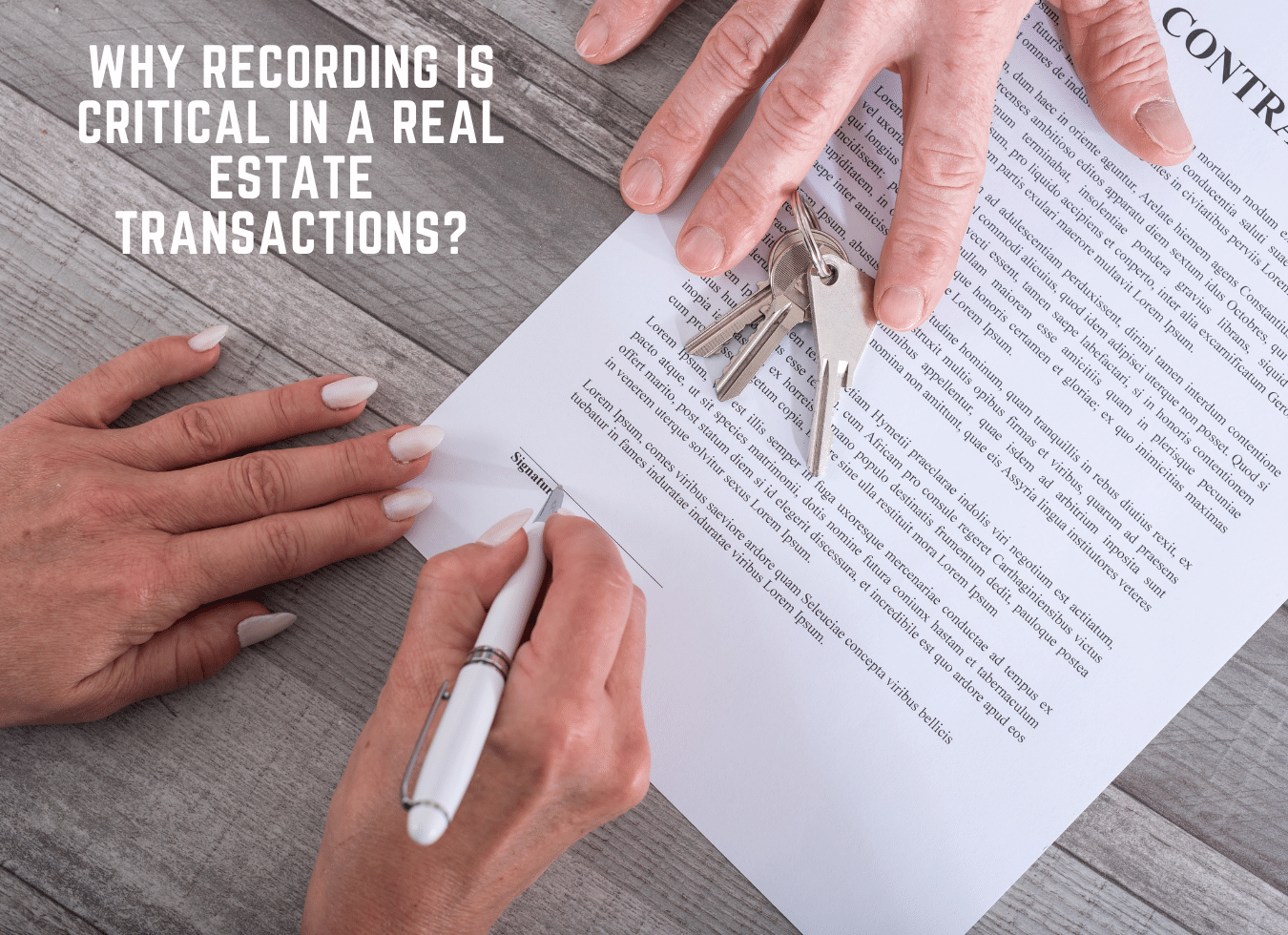When a real estate transaction occurs, it is important to keep official records current to verify the property’s history, purchase, and ownership. As a title company, you have to ensure that your clients’ real estate transactions are accurately recorded with the county. The recorder dates and stamps real estate documents and uploads them to a public website.
Improper or missing real estate records can lead to ownership disputes which can have severe legal and financial consequences on the buyer. For instance, if the buyer is purchasing a home, the lender may not allow them access to the house keys. The county recording office can also hold up their move-in date if recording is delayed.
What is a Real Estate Recording?
Recording is the act of putting a real estate or property transaction document into official county records to provide a traceable chain of title.
A real estate transaction document, also called a recording instrument, is a legal document recorded in the public land record system to show the title of a real property. A recording instrument also shows secured interest and proves the release of particular property interest. Some examples of real estate documents are deeds, mortgages, mortgage assignments, and mortgage satisfactions. Others include notice of commencement, leases, liens and lien releases, judgments, easements, decrees, wills, covenants, foreclosures, among other contracts.
How to record real estate documents
You can submit documents for recording either physically, by mail, or electronically.
In the United States, there are thousands of recording authorities sometimes called Recorder of Deeds or Clerks of Courts. Recording jurisdictions include counties, cities, and other governing bodies. While you can execute the instrument in any location, the law requires you to record the instrument under the property’s jurisdiction. That means you should confirm the property jurisdiction and follow the specific recording instructions for that particular jurisdiction.
Note that the recorder does not determine the validity of a recording instrument and cannot refuse a possible fraudulent instrument. An instrument is only invalid if it doesn’t meet the recording jurisdiction submission requirements.
Why Recording Security Instruments is Important in a Real Estate Transaction
1. Gives notice to the public
Recording a real estate document gives what is known as “constructive notice” to the public of new ownership. No new buyers can, therefore, claim not to know that the property had another owner before making a purchase since they can easily look up the public records.
2. Evidence of property ownership
Recorded documents create a chain of title traceable to the property to help verify a history of ownership. Anyone can access these records to verify property, which prevents fraudulent property sales. The buyer will still have evidence of property ownership even if they lose their original deed.
Failure to record a real estate transaction can create a title defect. A defective title keeps the buyer from legally transferring their property to someone else since they are not recognized as the property’s legal owner. Sellers are responsible for presenting marketable titles, but buyers are also responsible for examining and notifying sellers of any title defects.
3. Qualifies a buyer for title insurance and loans
Recording a real estate transaction gives buyers access to title insurance and credit from lenders. Title insurance is important as it protects the buyer from the financial losses of a defective title. Insurance protects buyers in case there is a title defect, lien, or claim of ownership before or after purchasing real estate.
Possible Errors When Submitting to a County Recorder
Be wary of submitting documents that contain clerical omissions or mistakes. While human error is a part of life, these title concerns can have a significant impact on the buyer’s property ownership rights. Some of the errors that can occur include::
- Inaccurate square footage of the property
- Spelling errors such as street name and address
- Incorrect or incomplete legal description of the property
- Missing information such as failure to mention a part of the property such as ponds, lakes, or other structures
- Missing names and signatures
- Wrong marital status Improper document filing
Errors can also pre-exist in public records after you make a title search during the real estate settlement process. In such a case, there are various approaches to correct the error which might include:
- Filing a new deed, a corrective deed or corrective affidavit
- Completing and submitting other legal documents to fix the error or omission
Partner With The Einfach Group for Your Recording Needs
Helping your clients list their instruments property after a real estate closing cushions them against title defects after the purchase. Most jurisdictions have online records where you can search and confirm that the property is recorded.
Instruments can take any time between a few hours and a few months to appear in the records due to factors such as how often the recording jurisdiction updates its online records, staffing shortages, and tech availability. Some instruments like lien releases and mortgage satisfactions may take longer depending on who has to draft them and confirm that the debt has been resolved.
The Einfach Group can help you fulfill your real estate recording needs with unsurpassed quality and turnaround times. We have access to thousands of jurisdictions across the United States to ensure prompt recording of real estate instruments. We also ensure a high level of accuracy, so you don’t have to worry about rejections. Contact TEG today to learn more about our recording solutions.
